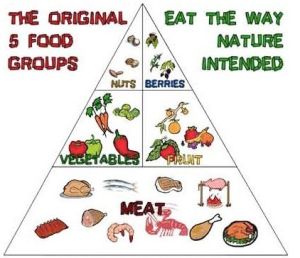Gluten-free does not equal healthy
I got a wonderful and thoughtful question from a blog reader last week, and I thought I’d answer it in a post because I am sure there are a handful of people that are confused about the same thing.
I know there has been a lot of confusion over the past couple years about gluten free diets and whether or not they are healthy. Let me start by saying I have had my own experience eating gluten free and eating normally over the past few years, and have discovered that, for me, gluten free/paleo-ish is the healthiest way for me to eat for my health, digestion, and mental wellness. BUT, that does not mean that when we eat gluten-free, our diet is automatically healthier.
One of my blog readers sent me a message last week stating that she saw that I eat gluten free, and that she tried going gluten free herself a few years ago but found that the gluten free breads, pastas, and mixes were all high in carbohydrates from rice and potato flours, and that they weren’t actually healthier. She wanted to know if she was right in thinking this and basically, what the deal is with gluten-free!
I’ll start by saying that this reader is SO smart to pick up on the fact that gluten free products are not healthier than their wheat flour counterparts. Just because a product is labeled gluten free does not mean it is healthier or a better alternative. And frankly, most of the time, it is higher in carbohydrates and sugar than the regular products. All foods are a mix of carbohydrates, protein, fat, and vitamins and minerals, so whether or not it has gluten in it does not change this fact.
Gluten is simply the protein found in wheat, and when people have allergies, they are typically reacting to the protein in a certain food. Gluten free products are substituted (most of the time) with rice flour or potato starch, plus are found to have even more sugar in them to make them taste good. They are still just has high (or higher) in carbohydrates, are often times devoid of fiber, and are still a treat. Gluten free cookies are still cookies, and gluten free pancakes are still pancakes.
My favorite paleo cookie recipe from Against all Grain! And I still treat them just like regular cookies; a TREAT to be consumed sometimes.
Now, that doesn’t mean that you can’t enjoy these foods. I love gluten free toast from Trader Joe’s and Pamela’s gluten free pancake and baking mix! But these gluten free treats should still be treated as TREATS. They should be eaten just as often as you would eat a regular pancake or regular cookie. Not an everyday food, but a sometimes food.
So be a savvy shopper. Just because something is labeled gluten free doesn’t mean that we can have bowls and bowls of gluten free pasta and still think that’s a “healthy” food choice.
And if you want to go gluten free, the best thing to do is replace your usual breads, pastas, or cookies, with plants. THAT is the healthiest way to go gluten free. So instead of having a hamburger, have a lettuce wrap with an additional side salad. Instead of having a cookie with your salad, have some more vegetables on the side or some fruit.
And most importantly, if you don’t have negative symptoms from eating gluten, there is no reason for you to go gluten free. Yes, gluten is inflammatory over all, and I don’t think there is any harm in cutting it out (if done right like I mentioned above, with the addition of plants). BUT if you don't experience any negative side effects from consuming gluten, there is no need to cut it from your diet. It won’t automatically make you healthier, especially if you are still consuming gluten free noodles, cookies, pancakes, and more.
I personally gravitate towards a gluten free diet because it helps me with my digestion issues and my anxiety. I even tried to incorporate some back into my diet as recently as last week (kodiak pancakes are a favorite of mine!) and starting feeling those similar symptoms return. For me, I have a clear reaction to consuming gluten, which is why I avoid it unless a food is absolutely worth it (and trust me, it rarely is worth it for me!) But just because I eat a gluten free diet does NOT automatically mean I am healthy. I eat a ton of vegetables, fruits, nuts, seeds, lean protein, and gluten free grains from time to time, along with those occasional gluten free/paleo treats, and all of that contributes to a healthy diet.
I hope this helps you become more aware of your food choices too and learn to be a detective in the grocery store and not just fall for any marketing that is slapped on our food products nowadays. The more we know, the better we do. And if you all have any more questions, please send them in! I love answering these types of questions I get, so please don’t hesitate!
Have a great Thursday, everyone!




